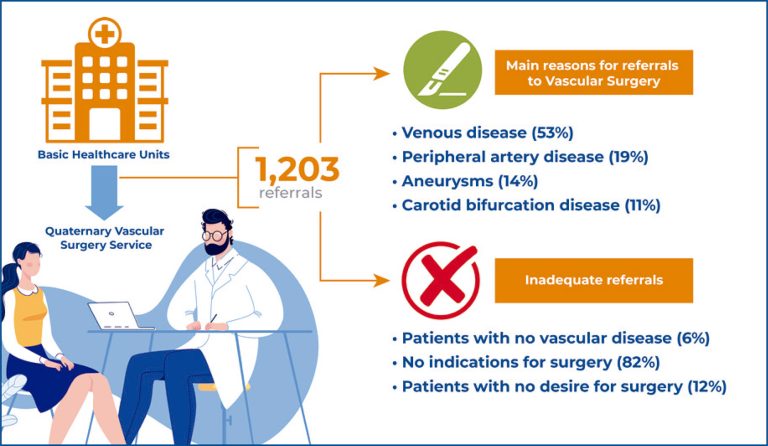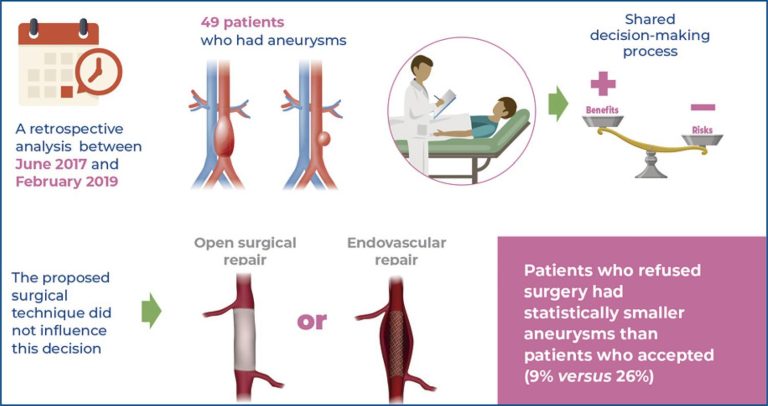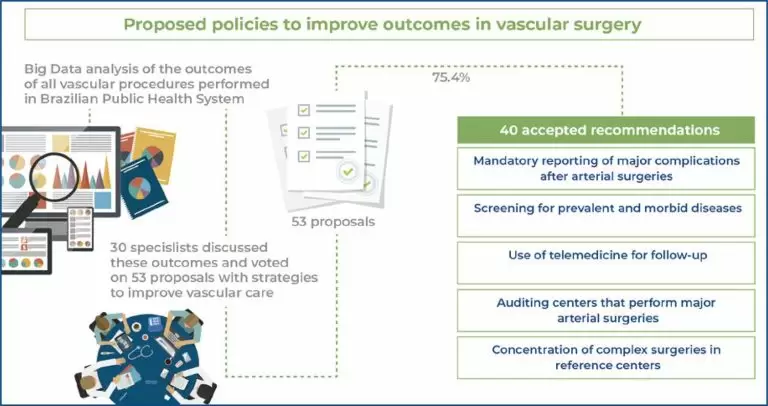09/May/2024
Retrospective analysis of 1,203 cases of referral to a quaternary vascular surgery outpatient clinic within the Unified Health System, São Paulo, Brazil
einstein (São Paulo). 09/May/2024;22:eAO0676.
View Article09/May/2024
Retrospective analysis of 1,203 cases of referral to a quaternary vascular surgery outpatient clinic within the Unified Health System, São Paulo, Brazil
DOI: 10.31744/einstein_journal/2024AO0676
Highlights Forty-three percent of referrals from basic healthcare units to a specialized vascular surgical service were regarded as inappropriate. The main reasons for inappropriate referrals included study participants without an indication for surgery and those referred to the wrong specialty. A high proportion of inappropriate referrals resulted in the subutilization of highly complex services. Use of telemedicine will assist in reducing the rate of inappropriate referrals. ABSTRACT Objective: Consequently, in this study, we aimed to evaluate 1,203 cases of referral […]
Keywords: Patient-referral systems; Public health; Telemedicine; Tertiary care centers; Vascular surgical procedures
03/Aug/2023
Shared decision-making and specific informed consent in patients with aortic aneurysms
DOI: 10.31744/einstein_journal/2023AO0197
Highlights Up to 26% of patients with aortic aneurysms refused surgical repair. The proposed technique, whether open or endovascular, did not influence patients’ decisions. Patients with smaller aneurysms were more likely to refuse aortic aneurysm treatment. ABSTRACT Objective To analyze the refusal rate of elective aortic aneurysm surgery in asymptomatic patients after the presentation of a detailed informed consent form followed by a meeting where patient and their families can analyze each item. Methods We conducted a retrospective analysis of […]
Keywords: Aortic aneurysm; Consent forms; Decision making, shared; Patient rights; Vascular surgical procedures
03/Aug/2023
Proposed public policies to improve outcomes in vascular surgery: an experts’ forum
DOI: 10.31744/einstein_journal/2023AE0241
Highlights Notification of complications of arterial surgeries is essential in identifying strategies to improve surgical outcomes. Screening of prevalent and/or morbid diseases allows early intervention and prevention of complications. Use of telemedicine in vascular follow-up allows optimizing the use of resources and reducing the burden on health services. Concentrating complex cases in reference hospitals leads to improved surgical outcomes. ABSTRACT Objective To evaluate outcomes of vascular surgeries and identify strategies to improve public vascular care. Methods This was a descriptive, […]
Keywords: Amputation, surgical; Big data; Carotid artery diseases; Endovascular procedures; Health policy; Peripheral arterial disease; Public Policy; Vascular diseases; Vascular surgical procedures




